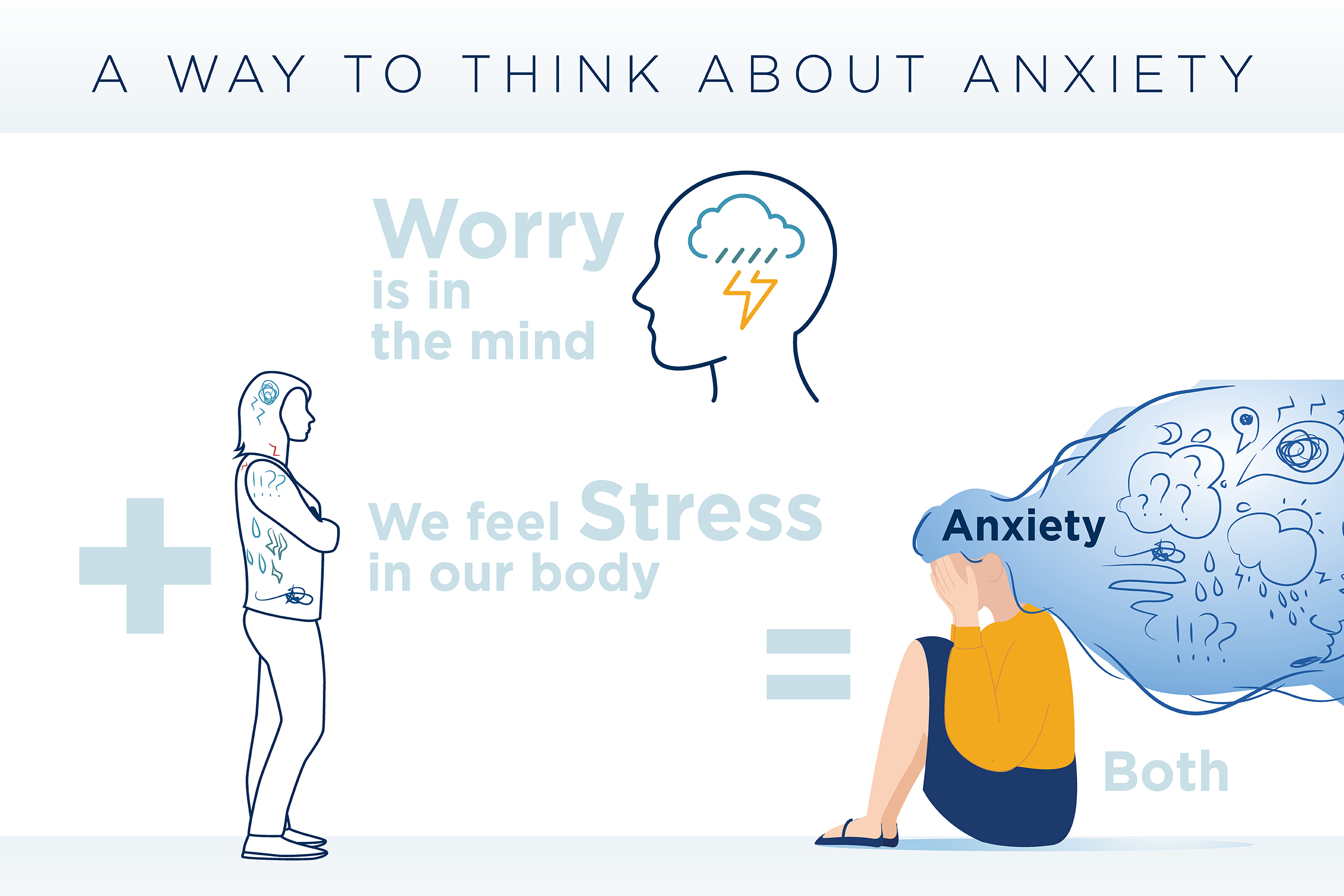
Anxiety is a feeling of intense nervousness or unease. It can arise when we think about bad things that could happen, when the mind stays on negative thoughts or things that could go wrong, or without any known reason.
For hospice patients, anxiety is common and normal. Anxiety impacts the mind, the body and sometimes both, and we always address it as quickly as possible.
Causes
Anxiety may have emotional causes like:
• Fear of pain, disease progression, dying or death
• Feelings of loss, grief or leaving things unfinished
• Spiritual, religious, or personal crisis
Physical changes or symptoms can also cause anxiety including:
• Pain
• Trouble breathing
• Natural changes in brain chemistry due to disease or the dying process
• Cardiac arrhythmias (irregular heartbeat)
• Side effects of steroids, stimulants, antidepressants or other medicines, and drug withdrawal
• Other physical conditions
Signs
Talk to your team immediately if you notice any of these symptoms:
• Irritability
• Sleeplessness (insomnia)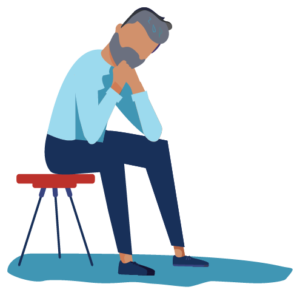
• Inability to focus
• Crying
• Restlessness, fidgeting or squirming
• Increased blood pressure
• Trouble breathing
• Sweating
• Stomach pain, nausea, and/or diarrhea
• Dry mouth
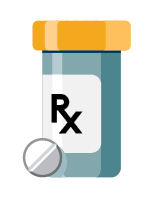
People commonly take Lorazepam (Ativan), Diazepam (Valium) and/or Clonazepam (Klonopin) for anxiety. It can take minutes or hours for these medicines to work. We may also recommend an anti-depressant for these symptoms, which can take weeks to work. Talk to your nurse about these medicines and their side effects.
Caring for Anxiety Without Medicine
 Calm the nervous system by encouraging slow and deep breaths
Calm the nervous system by encouraging slow and deep breaths Enjoy nature by sitting near a window or outside
Enjoy nature by sitting near a window or outside
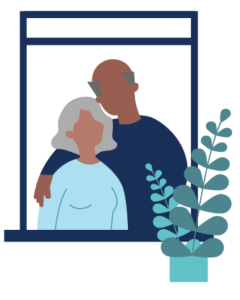
 Play the “Name Game” – ask your loved one to say three things they see, three things they hear and three things they feel
Play the “Name Game” – ask your loved one to say three things they see, three things they hear and three things they feel Create a calm space – dim lights, play white noise or peaceful music, talk quietly and move slowly
Create a calm space – dim lights, play white noise or peaceful music, talk quietly and move slowly Try aromatherapy – lavender, bergamot, ylang-ylang and rose can have calming effects
Try aromatherapy – lavender, bergamot, ylang-ylang and rose can have calming effects Play free audio guided imagery by experts like Dr. Kristin Neff and Leslie Davenport, MFT
Play free audio guided imagery by experts like Dr. Kristin Neff and Leslie Davenport, MFT Download a meditation app like Calm, Headspace, Liberate (Black community-centered) or iBreathe
Download a meditation app like Calm, Headspace, Liberate (Black community-centered) or iBreathe
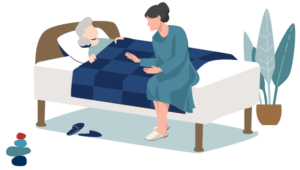
Patients and caregivers can reduce anxiety by talking together about feelings and worries. Social Workers and Spiritual Support Counselors can guide important conversations. Talk with your team to learn more.

